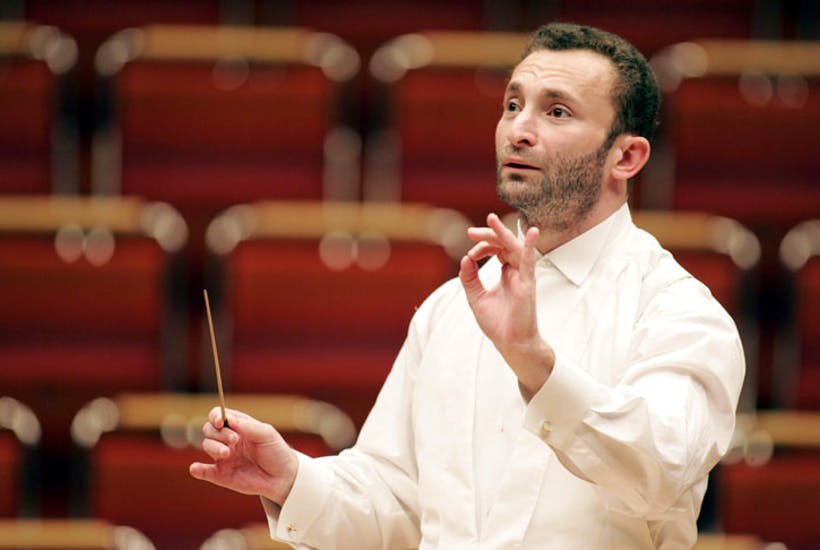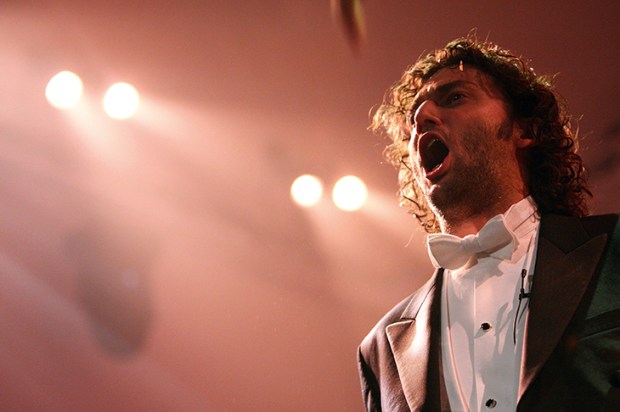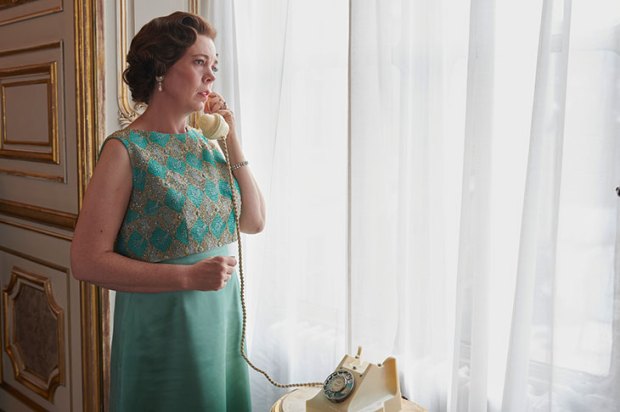Two summers ago, the BBC were offered a Proms visit by the Bavarian State Orchestra with its music director, Kirill Petrenko. The conversation went something like this.
BBC: ‘Petrenko, isn’t he the chap that conducts Liverpool?’
Munich: ‘No, that’s Vasily Petrenko. This one is Kirill.’
BBC: ‘Well, we don’t really know about him over here. He won’t sell at the Proms.’
Barely was the snub delivered than Kirill Petrenko was elected music director of the Berlin Philharmonic, the most coveted orchestra on earth, and the music biz had a good laugh at the BBC’s dumb insularity. But let’s not be too beastly to the BBC: its ignorance was universally shared.
The new Berlin chief, in his mid-forties, is as close as you can get to being an unknown commodity. He has never given a media interview (my request for an off-the-record coffee was coolly declined) and has made just five commercial recordings. He refuses to play maestro games — you conduct my orchestra, I’ll conduct yours — and is no respecter of vanities. When the Berliners handed him Sir Simon Rattle’s job, Petrenko swiftly renewed his Munich contract until 2021. He’ll take Berlin in his own time.
It’s hard to keep count of the moulds he has broken. He will be Berlin’s first Russian chief, its first beard since Arthur Nikisch (died 1922), its first Jew. At the time of his election he had not worked with the Berlin Philharmonic for more than four years and had no plans to return. Yet the moment the ballot was cast, Berlin players told anyone who would listen that he was exactly what was needed — a breach with the stolid fixities of orchestral music and a leap into the void with a leader of fixed principles who might, just might, cleanse the system of its toxic delusions.
Could Kirill Petrenko be the long-awaited saviour of classical music? The son of Siberian musicians who migrated to Austria in 1990, he studied conducting in Vienna and landed his first job in the small town of Meiningen. Not yet 30, he caught the eye by conducting the four operas of Wagner’s Ring on successive nights. Bayreuth booked him for the next summer and Berlin’s Komische Oper installed him as music director.
Musicians in big cities inhabit a goldfish bowl, swimming in and out of each other’s circles. When word spread from the Komische that the new guy was pretty good, players from the Berlin Phil dropped by to deputise and socialise. Petrenko impressed them as a natural primus inter pares, one who gets musicians to do what he wants, often without them knowing he has asked.
His rehearsals are closed, and intimate. Facing the Israel Philharmonic, which has a reputation for eating young batons for breakfast, he tapped on his stand and asked for a special favour. He confided that he had two grandmothers living in an apartment in Bat Yam, south of Tel Aviv. ‘It’s OK,’ he said, ‘they live in peace. But I promised them a good concert. So, please, let us work very hard to give (my) grandmothers a very good concert.’ The Israeli musicians melted like gelato in sunlight.
At Bayreuth he shared duties with Christian Thielemann, a Wagnerian of reactionary political views, and the naive Latvian Andris Nelsons. The more odious the festival’s faux-modern productions, the more audiences cheered the maestros. The team soon broke up. Nelsons accused Thielemann of interfering with his rehearsals and the soprano Anja Kampe walked out of Thielemann’s Tristan und Isolde, while continuing to sing in Petrenko’s Ring. German media reported that Kampe and Petrenko had been in a relationship. This is the only known clue to Petrenko’s personal life.
He appears to guard his privacy more out of old-fashioned fastidiousness than the fear of tabloid prurience. Musicians find him friendly, open and incredibly hard working. In 2010 he became music director of Bavarian State Opera alongside the Austrian Nikolaus Bachler as general director, turning Munich into the world’s most exacting and exciting opera hub, home base to Jonas Kaufmann and Anja Harteros as well as some of the most challenging productions on earth.
The company’s quality is built on Petrenko’s dedication. A member of one of Munich’s three symphony orchestras, summoned to cover at the opera, was told to see the maestro for a quick run-through. Expecting a five-minute chat about tricky entries, he found Petrenko waiting for him at the stage door, score in hand, ready to devote an hour of his time to a single substitute player.
The Munich performances I have seen — one world première on stage and several online — impressed me in both line and lyricism. Petrenko has that rare, Furtwänglerian ability to convey, from the first downbeat, the structure of all that follows. Players tell me they find his presence quietly reassuring. Avoiding lavish gestures, he instils conviction and self-confidence.
When the Berlin Phil called time on Rattle in 2014 the musicians split between the bumptious Thielemann and a fistful of candidates marked Anyone-but-Thielemann. After Andris Nelsons was eliminated, Petrenko finally beat Thielemann in a day-long secret conclave by, it is said, a single vote. Typically, he was absent from his victory announcement.
So the highest-profile orchestra now has the shyest chief conductor. How will that work? Petrenko has told players he will not give media interviews but will appear once a year at a press conference, where he can be questioned on musical matters. He will also do video chats with musicians and his concerts will be streamed on Berlin’s Digital Concert Hall, which has a 30,000 subscriber base. Unlike all other maestros, he has the merit of total novelty.
But what really excited the players is the difference. After decades of being driven by record labels and commercial interests, the Berlin Philharmonic is reverting to a pre-Karajan world where the concert experience is unmediated and all that matters is the music. Petrenko, who likes orphaned works — Elgar’s second symphony, the shorter works of Josef Suk, the colour symphonies of Scriabin — could be a game-changer. The BBC are desperately trying to get him for next summer’s Proms.
Got something to add? Join the discussion and comment below.
Get 10 issues for just $10
Subscribe to The Spectator Australia today for the next 10 magazine issues, plus full online access, for just $10.
You might disagree with half of it, but you’ll enjoy reading all of it. Try your first month for free, then just $2 a week for the remainder of your first year.














Comments
Don't miss out
Join the conversation with other Spectator Australia readers. Subscribe to leave a comment.
SUBSCRIBEAlready a subscriber? Log in